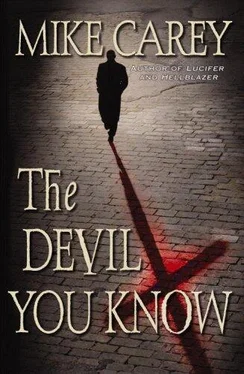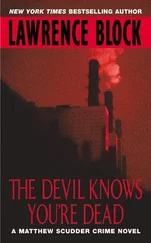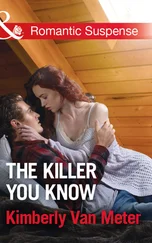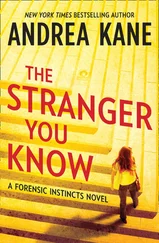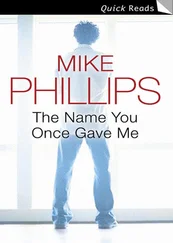“You said that what you do depends on your obtaining an impression of the ghost? A fix on her?”
“Yes. That’s right.”
“But you did that yesterday, didn’t you? The first time you went into the Russian room. That’s what you told me. So why is it that you’re still unable to dispel her?”
“It was a weak fix,” I said bluntly.
“Does that mean it’s useless?”
I clenched my teeth on a word that probably didn’t appear in any of the archive’s seventy-five miles of shelving.
To tell the truth, I was a little frustrated myself. The ghost had been right there with me twice now. The first time, I’d screwed the contact up for myself; the second time, Tiler had done it for me. If I could have held either one for just half a minute longer, I could be shaking the dust of the Bonnington off my feet and walking home with a grand in my pocket—at that moment, a consummation very fucking devoutly to be wished. Instead, I was providing sleeve notes for Alice, who I knew by now was one of those people who never stop asking until they get the answer they want.
So I did something a little stupid. I went on when I should have stopped and got out of there.
“No. I didn’t say that. A weak fix is a good start—and I was lucky to get one so fast. You can turn a weak fix into a strong fix, if you know what you’re doing.”
I could still have walked away at that point. I was going to. I’d already decided. But she was looking at me with scorn and skepticism, clearly measuring my lackluster performance against the three hundred pounds I’d already been paid.
“In fact,” I said, “there’s something we could try right now, if Rich is up for it.”
“Eh?” Rich had had his head down all this time, either working or pretending to. The idea that he might get drawn into the action obviously filled him with alarm.
“It’s a trick I’ve used a couple of times,” I said. “It might pull the ghost in if it’s close by. And even if it doesn’t do that, it should still give me a clearer sense of where the ghost is hanging out—what part of this building is its anchor, or its home.”
I cleared a space on the layout table. This involved shoving aside some of Jon Tiler’s pencils and worksheets, which he snatched out of my hands indignantly.
“Has she got to have an anchor?” Alice asked, stubbornly insisting on the personal pronoun.
“No,” I admitted. “But most of them do. We’re playing the odds.”
I turned to Rich.
“Rich,” I said, “how would you feel about being wounded again? Just very slightly this time, and in the name of science?”
He hesitated again, searching my face for a clue to what I meant. When I took out the diabetes blood-testing kit from my pocket, he looked even more doubtful—but Tiler looked downright sick.
“It’s okay,” I reassured him. “It’s not surgery, it’s just—sympathetic magic. The ghost spilled Rich’s blood. That’s unusual in itself. Most ghosts, even the ones in the angry brigade, they’re happy just to chuck stuff around. Smash a window or two, maybe, leave scratch marks on the furniture—that sort of number. Actual violence, though, that’s rare. Wounding you is probably the most intense experience this spirit has had since it crossed over.”
I had their full attention now. Opening up the test kit, I took out the disinfectant and unscrewed the lid. Then I picked up a bubble pack and tore it open. It contained a sharp—a thin strip of stainless steel with a short but keen point at one end. I anointed this end with the antiseptic.
“Nobody knows,” I said, “whether ghosts are made out of emotions or just drawn to them. Either way, it’s pretty much an accepted fact that they’ll usually choose to hang around in places where they experienced strong emotions in life. Fear. Love. Pain. Whatever. But there’s another side to the equation. If they become involved in strong emotions after they’ve died—because they’ve seen or been part of intense or violent events—then that’s got a powerful draw for them, too. When this ghost stabbed Rich with the scissors, the experience must have been incredibly powerful. Incredibly vivid. Pleasant or unpleasant, or most likely both. What Rich felt, and what the ghost felt, would have been all tangled together, and all screwed up to a pitch of intensity—like being caught in a nail-bomb blast and having an orgasm at the same time.”
Alice put on a sour, disapproving face at the sexual metaphor, but I think they all got it.
“So we can use that now,” I concluded, simply. “If Rich reenacts the wound, the ghost may respond. It ought to feel the ripples from the original event stirred up again by the replay. If we’re lucky, it won’t be able to help itself. It might be drawn right here, in which case I’ll probably be able to finish the job tonight. But whether it comes or not, it should look in this direction; it should be pulled toward us. And I’ll sense it. I’ll be able to triangulate on where it is.”
All eyes turned to Rich, who shrugged as nonchalantly as he could.
“Okay,” he said. “I’m not scared of a little prick with a needle.”
In the tense, expectant atmosphere, nobody touched the straight line. Rich held out his hand, and without preamble, I jabbed him once with the sharp, on the ball of his forefinger. He had enough self-control not to wince.
“Squeeze out a drop of blood,” I said. “On the desk, preferably.”
“I can’t authorize the cleaners to wipe up blood,” Alice objected, but Rich was already doing it. Clenching his right forefinger in his left hand, he tightened his grip, and a pearl of blood welled up from the tiny wound. It reached critical mass and fell onto the desk with a slight but audible splat.
I handed Rich a swab of cotton wool from the kit, and he reached out his good hand to take it. But before he could, both the cotton wool and the sharp were swatted from my fingers by an invisible force. Rich gave a yelp of shock as his hand was flicked away, too. All the heads present, including mine, snapped around—to stare at empty air.
Then the entire room went crazy.
It was as though there was a wind—a whirlwind—that we couldn’t feel: a whirlwind that flesh was immune to, but that swept all other substances before it with implacable fury. Both doors to the room slammed deafeningly shut; books and files leaned over, tumbled, and fell to the floor; and papers flew from every desk and shelf to envelop us in an instant A4 blizzard. At the same time, the floor shuddered to a series of pounding thuds, the vibrations so powerful that my jaws clacked shut on the tip of my tongue. Cheryl swore, and Alice screamed. Rich gave a choking cry, backing away from the swirl of papers and striking ineffectually at the air. Jon Tiler and the other guy whose name I’d already forgotten both hit the floor in best Protect and Survive style, with their arms over their heads as though they were expecting a nuclear attack.
As for me, I just stood and watched as maps and posters and fire-drill charts hauled themselves off the walls and added themselves to the general melee. It was instinctive: not arrogant, or defiant, or particularly brave. It was just that this was information, and I wanted to make sure that I didn’t miss anything that might turn out to be important.
So when one small piece of paper or card came fluttering toward me, sailing against the storm, I noticed it at once. Unlike most of the diabolically animated paperwork, it was a lot smaller than A4. More to the point, it was dancing to the beat of a different drum, almost hovering, its short feints to left and right keeping it more or less directly in front of my face. I reached up and grabbed it out of the air. I couldn’t look at it because file folders and envelopes and catalogs and worksheets were beating against me and wrapping around me. I closed my hand on it instead, used the other hand to shield my face until, only a few seconds later, the tempest stopped. It didn’t slacken or falter, it just died, and everything that had been snatched up into the air fell simultaneously to the ground. Except for the scrap of card that I was holding—that went into my trouser pocket.
Читать дальше
